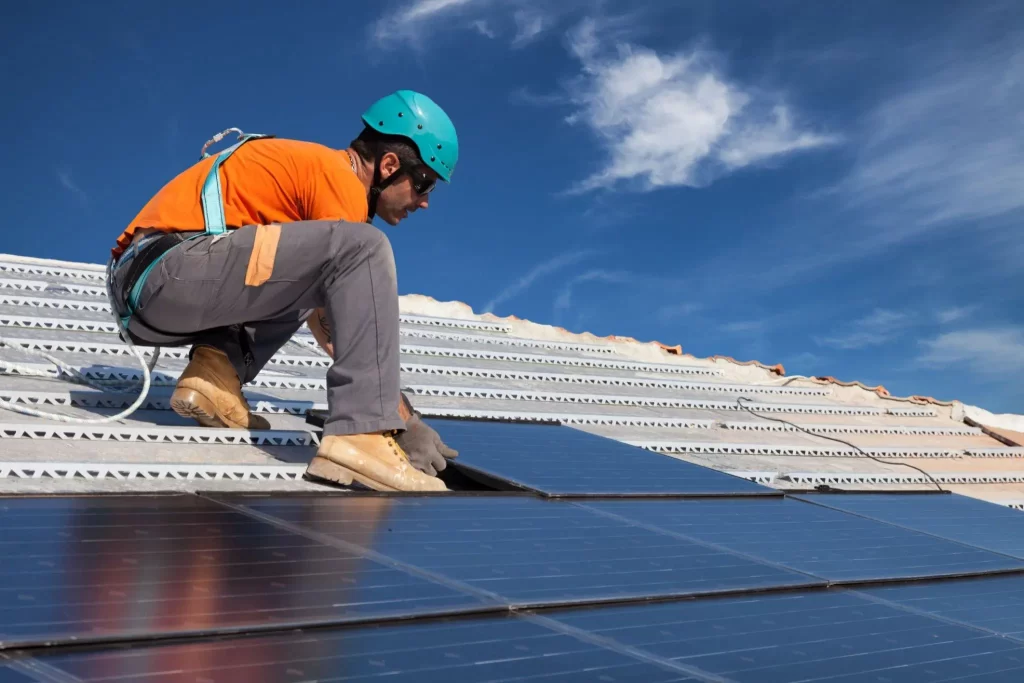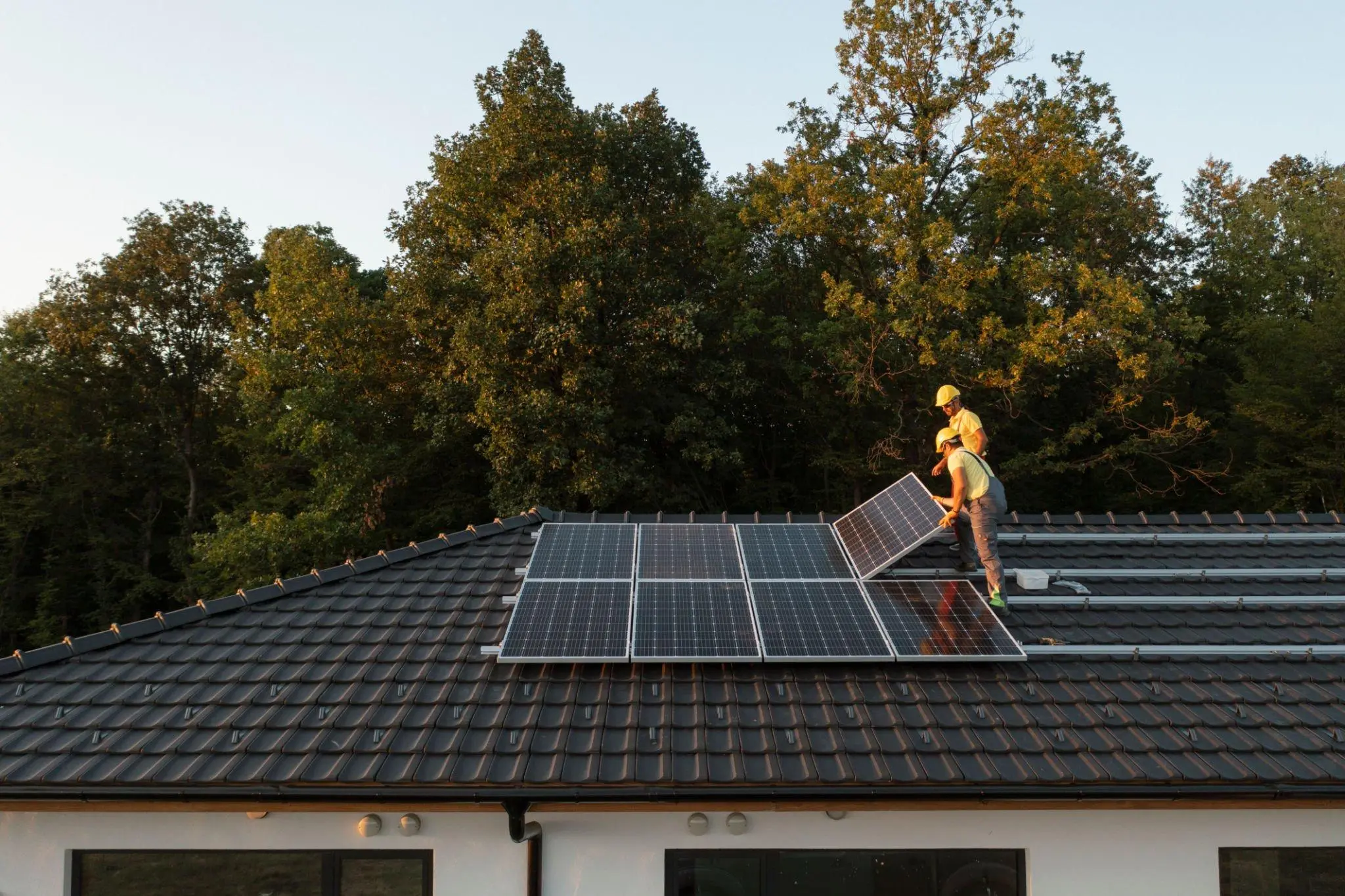What is residential solar in Australia?
Residential solar in Australia refers to the use of solar panels and related equipment to generate electricity for a single-family home. This type of solar energy system is designed to be installed on the roof of a house or on the ground, and can provide a clean, renewable source of electricity for homeowners. The electricity generated by a residential solar system can be used to power the home and reduce the amount of electricity that needs to be purchased from the grid, potentially lowering monthly energy bills. With government incentives and rebates available in many cases, residential solar can be a cost-effective way for homeowners to increase their energy independence and reduce their carbon footprint.
How many solar panels does it take to run a house in Australia?
The number of solar panels needed to power a house in Australia depends on several factors, including:
- Energy Consumption: The amount of electricity the household consumes on average. This can vary significantly depending on factors such as the size of the house, the number of occupants, energy-efficient appliances, and lifestyle habits.
- Solar Panel Efficiency: The efficiency of the solar panels themselves can impact how much electricity they generate. Higher efficiency panels can produce more electricity with the same amount of sunlight.
- Sunlight Availability: The amount of sunlight the location receives throughout the year affects how much energy the solar panels can generate. Australia, in general, receives ample sunlight, but specific regions may have different levels of solar irradiance.
- Orientation and Tilt: The orientation and tilt of the solar panels also play a role in their efficiency. Panels ideally should be facing towards the sun and at an angle that maximizes sunlight exposure.
- Battery Storage: Whether the household is connected to the grid or relies on battery storage for solar energy at night also affects the number of solar panels needed.
Without specific details about the factors mentioned above, it’s challenging to provide an exact number of solar panels required to power a house in Australia. However, on average, a typical Australian household may require between 15 to 25 solar panels to meet its electricity needs, assuming it has an average energy consumption and uses modern, efficient solar panels. It’s recommended to consult with a solar energy provider who can assess your specific situation and provide a more accurate estimate.

What are the available financing options for purchasing a residential solar system?
There are several financing options available for purchasing a residential solar system, including:
- Cash Purchase: The most straightforward option is to pay for the system in cash. This eliminates interest charges and allows you to own the system outright, potentially providing a higher return on investment over time.
- Loan Financing: Many banks and other financial institutions offer loans specifically for residential solar systems, allowing you to spread the cost of the system over several years.
- Leasing: Some solar companies offer leasing arrangements, where you pay a monthly fee to use the solar system but do not own it. This can be a good option for homeowners who want to reduce their energy costs but do not have the upfront capital to purchase a system.
- Power Purchase Agreements (PPAs): A PPA is a contract between a homeowner and a solar company, where the solar company installs, owns, and maintains the solar system, and the homeowner agrees to purchase the electricity generated by the system at a predetermined rate.
Each financing option has its own advantages and disadvantages, and the best option for you will depend on your individual circumstances. It’s important to carefully consider your financial situation and goals when choosing a financing option to ensure you select the option that is right for you.
What is the warranty period for solar panels and inverters?
The warranty period for solar panels and inverters can vary depending on the manufacturer and the specific product. However, most solar panels come with a warranty of 20 to 25 years, while most inverters have a warranty of 5 to 10 years.
The warranty period for solar panels typically covers defects in the materials and workmanship of the panels, as well as a decrease in power output over time, which is known as power degradation. The warranty for inverters covers defects in the materials and workmanship of the inverter and typically includes repair or replacement of the unit if it fails during the warranty period. It’s important to carefully review the warranty terms and conditions when purchasing a solar system to understand what is covered and for how long. Some warranties may be transferable if you sell your home, and some manufacturers may offer extended warranty options for an additional cost.
What are benefits of installing residential solar panels in Australia?
There are several benefits of installing residential solar panels in Australia, including:
- Lower Energy Bills: Solar panels can generate electricity to power your home, reducing your reliance on the grid and potentially lowering your monthly energy bills.
- Increased Energy Independence: By generating your own electricity, you become less dependent on the grid and can potentially avoid future price increases for electricity.
- Environmental Benefits: Solar panels generate clean, renewable energy, reducing your carbon footprint and helping to protect the environment.
- Government Incentives: In some cases, the Australian government offers incentives and rebates to encourage homeowners to install solar panels, making it more affordable to go solar.
- Increased Home Value: A residential solar system can increase the value of your home and make it more attractive to potential buyers.
- Improved Energy Efficiency: Installing solar panels can encourage you to become more energy efficient by using energy more wisely and reducing your overall energy consumption.
- Increased Grid Reliability: By generating your own electricity, you can help to increase the reliability of the grid by reducing the demand for electricity from the grid during peak hours.
Overall, installing residential solar panels in Australia can provide a range of financial, environmental, and practical benefits, helping you to reduce your energy costs and become more self-sufficient.
ADS SOLAR, We are best residential solar panels installer in Australia. We uses high-quality, reliable solar panels and inverters. We are reputable and qualified residential solar panel installer in Australia.
Call Us Anytime : 1300 812 911
Frequently Asked Questions (FAQ) – Residential Solar in Australia
A: Installing a residential solar system can significantly reduce your electricity bills, provide a clean and renewable energy source, increase the value of your property, and contribute to reducing your carbon footprint.
A: The cost of a residential solar system in Australia can vary depending on factors such as the size of the system, the quality of the components, and installation expenses.
A: Yes, the Australian government offers various incentives, rebates, and schemes to promote the adoption of residential solar systems. These include the Small-scale Renewable Energy Scheme (SRES) and various state-based incentives that can significantly reduce the upfront costs of installing solar panels.
A: The size of the solar system you need depends on your energy consumption, roof space, and location. It’s essential to assess your household’s electricity usage patterns and consult with a solar provider to determine the appropriate system size that can meet your energy needs.
A: Solar panels generally require minimal maintenance. Regularly cleaning the panels to remove dust and debris and scheduling occasional professional inspections to ensure optimal performance are recommended. Most reputable solar companies offer warranties that cover maintenance and repairs for a certain period.
A: Connecting your residential solar system to the electricity grid allows you to sell excess energy back to the grid. This surplus energy is often compensated through feed-in tariffs, where you receive credits or payments from your energy provider for the electricity you contribute.
A: Yes, integrating a battery storage system with your solar setup can help you store excess energy for use during peak hours or at night. This can increase your energy self-sufficiency and provide backup power during grid outages.
A: Most residential solar systems come with a warranty of 25 years for power output and 10 to 15 years for product and workmanship. With proper maintenance, solar panels can continue to generate electricity well beyond their warranty period, often up to 25 to 30 years.


